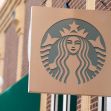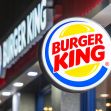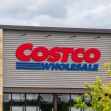Starbucks will face a consumer protection lawsuit over misleading advertisements of its lineup of refresher drinks. The lawsuit accuses the coffee chain of misleading consumers by selling fruit refresher drinks that don't contain the fruits they advertise.
The lawsuit was filed by Noan Kominis of New York and Jason McAllister of California in August 2022 in the United States District Court Southern District of New York. At the center of their complaint is the Starbucks’ Refresher line which includes Mango Dragon-Fruit, Mango Dragon-Fruit Lemonade, Pineapple Passion-Fruit, Pineapple Passion-Fruit Lemonade, Strawberry Açai and Strawberry Açai Lemonade. The lawsuit contends that the coffee chain engaged in false and deceptive marketing tactics when advertising its refresher drinks.
Regulation over food advertising and labeling is managed by three agencies; the Food and Drug Administration (FDA), the Federal Trade Commission (FTC), and the Food Safety and Inspection Service (FSIS) of the U.S. Department of Agriculture (USDA).
Under federal law, advertisements must be truthful, not misleading, and, when appropriate, backed by scientific evidence. The plaintiffs accuse Starbucks of violating consumer and advertising laws by knowingly misleading its customers. “Unfortunately for consumers, Defendant engages in false and misleading advertising regarding the Products to gain a competitive edge in the market, all at the expense of unsuspecting consumers,” explains the lawsuit.
Despite the drinks listing fruits including mango, passion fruit, or açai in some of the drinks, plaintiffs say the drinks don’t actually include those fruits. Had plaintiffs known the drinks were missing the advertised fruit, they say they would not have paid a premium price for the drinks. Instead, the plaintiffs argue the drinks are made with grape juice concentrate, sugar, and water.
“Missing fruit ingredients are important to consumers because they are premium ingredients, and consumers value them over the less nutritious and cheaper grape juice concentrate found in the Products,” the lawsuit reads.
Starbucks defended itself calling the lawsuit “inaccurate and without merit” and shared that the fruits listed were merely references to the drink flavors and not necessarily ingredients. On September 15, 2022, Starbucks filed a motion to dismiss the case. U.S. District Judge John Cronan disagreed with Starbucks' defense, allowing the case to proceed. The judge noted that a "significant portion of reasonable consumers" would have purchased the drinks with the belief that they contained the fruit advertised.
Judge Cronan added, “In contrast with the use of the term ‘vanilla,’ which has been the subject of several prior cases, nothing before the Court indicates that ‘mango,’ ‘passionfruit,’ and ‘açaí’ are terms that typically are understood to represent a flavor without also representing that ingredient.”
The lawsuit also highlights that the chain names its drinks based on the ingredients inside. “Starbucks’ hot chocolate contains cocoa, its matcha lattes contain matcha, and its honey mint tea contains honey and mint,” explains the complaint.
Judge Cronan dismissed two of the claims made in the lawsuit. The court ruled the plaintiffs failed to offer enough evidence to show Starbucks intentionally tried to defraud its customers or engage in unjust enrichment. The remaining nine claims have been allowed to move forward.
The lawsuit against Starbucks is one of several in a recent string of complaints targeting companies In the food and beverage industry for false or misleading advertisements.
Fast food chain Burger King was the most recent target of a consumer complaint after a lawsuit accused it of falsely advertising the popular Whopper burgers. The class action complaint argued advertisements of the burger make them look 35% larger than reality with nearly double the meat as what customers are actually served. In that case, Burger King argued that it was not required to serve burgers that looked “exactly like the picture.”
In the case of Starbucks, the lawsuit is seeking damages in excess of $5 million.






